- 2022-
- 2017-2021
- 2012-2016
- 2007-2011
- 2002-2006
- 1997-2001
- 1992-1996
- ALL
Information on past Blue Planet Prize laureates corresponds to their titles and positions at the time Prize was awarded.
2022
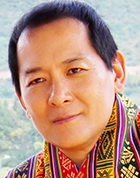
His Majesty Jigme Singye Wangchuck, the Fourth King of Bhutan
Prioritizing the Happiness of the Bhutanese People
His Majesty introduced the development philosophy of Gross National Happiness (GNH), which places people's well-being at the heart of development activities and programmes.
2022
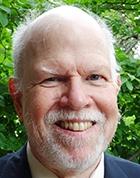
Emeritus Director of the Center for Limnology,
Stephen Alfred Forbes Professor Emeritus of Integrative Biology, University of Wisconsin-Madison
Professor Stephen Carpenter
Lake Ecosystems
Professor Stephen Carpenter studied the resilience of lakes, providing a new perspective on social-ecological systems. From a broad geochemical viewpoint, he highlighted environmental pollution from phosphorus, attributable to land use.
2021
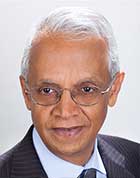
Edward A. Frieman Endowed Presidential Chair in Climate Sustainability
Scripps Institution of Oceanography, University of California, San Diego
Prof. Veerabhadran Ramanathan
Cause of Global Warming besides CO2
Professor Veerabhadran Ramanathan discovered that short-lived climate pollutants (SLCPs) have great impact on global warming. He later took the initiative in global action to reduce SLCPs.
2021
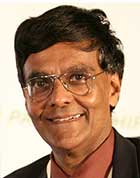
Founder Chairman, Munasinghe Institute for Development (MIND)
Prof. Mohan Munasinghe
Harmonizing Economy, Environment, and Society
Professor Mohan Munasinghe has been doing practical research and development in environmental economics by applying his sustainomics framework, which views development issues from environmental, social, and economic perspectives.
2020
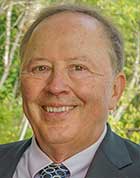
Regents Professor, University of Minnesota, Distinguished Professor, University of California, Santa Barbara
Prof. David Tilman
Healthy Foods Are Also Good for the Environment
He has studied health and environmental impacts of agriculture and of dietary choices and demonstrated that foods which are beneficial to human health are also good for the environment. He has advocated shifts towards diets and agricultural practices that are better for human health and the global environment.
2020
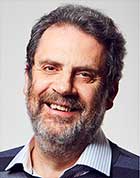
Director of Strategic Conservation at Synchronicity Earth, Former Chair of the IUCN Species Survival Commission
Dr. Simon Stuart
Development of the Wildlife Conservation Framework and Practices
He made a great contribution to improving scientific reliability of the Red List for threatened species. He has worked hard to conserve wildlife including raising the alarm that amphibians’ habitats are deteriorating.
2019
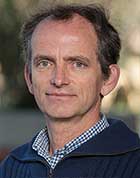
Professor, Université catholique de Louvain
George and Setsuko Ishiyama Provostial Professor, Stanford University
Prof. Eric Lambin
Prof. Lambin has clarified the land use changes taking place on a global scale, the effects on ecosystems, and the relationship between human economic activities and land use, using satellite remote sensing technologies and his original method. His research findings have contributed to the worldwide promotion of forest conservation and sustainable land use.
2019
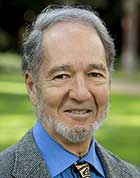
Professor, Department of Geography University of California, Los Angeles
Historian, Non-fiction author
Prof. Jared Diamond
Through his trilogy, Guns, Germs, and Steel, Collapse, and The World Until Yesterday, Prof. Diamond provided deep insight into the roots of today's environmental problems. He has influenced many people regardless of age or nationality to consider the next steps for civilization.
2018
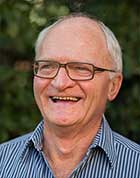
Hon. Research Fellow of the Commonwealth Scientific and Industrial Research Organisation (CSIRO)
Prof. Brian Walker
Resilience - the ability to respond to changes
Professor Walker has studied resilience, the ability to respond to any changes nature has and advocated the need to increase the resilience so that the entire natural and social system facing unexpected changes can survive.
2018
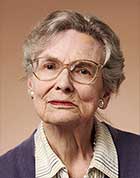
Professor of Applied and International Hydrology Senior Researcher at Stockholm Resilience Center
Prof. Malin Falkenmark
Water is bloodstream on the Earth.
Professor Falkenmark noticed through her decades-long research that poverty in developing countries was deeply related to water issues and has contributed greatly to the solution of water issues by developing an indicator to show the degrees of water shortages and advocating the use of invisible water called "Green Water."
2017
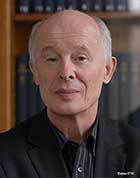
Climate Scientist (Founder and Director of the Potsdam Institute for Climate Impact Research (PIK))
Prof. Hans J. Schellnhuber
Solving problems before they become irreparable
With the Earth System Analysis Prof. Schellnhuber has predicted adverse effects of the global warming to our lives. He has also reiterated the importance of the creation and implementation of international measures against global climate change with scientific evidence and has contributed to the international community's target of limiting global warming by 1.5 to 2 degrees Celsius.
2017
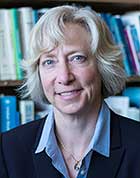
Biologist (Bing Professor of Environmental Science in the Department of Biology, Stanford University)
Prof. Gretchen C. Daily
Nature around Us
To achieve a right balance between conservation of environment and prosperity of human society, Prof. Daily has contributed to the creation of a conceptual framework called Countryside Biogeography, which focuses on an ecosystem where human presence and activities strongly influence living and non-living ecosystem components. She has also made significant efforts to realize a sustainable society by incorporating the valuation of ecosystem services into policy measures and economic activities.
2016
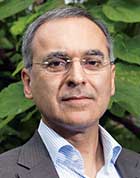
Environmental Economist (UNEP Goodwill Ambassador)
Mr. Pavan Sukhdev
Nature is not free!
Mr. Shukhdev has devoted himself to the promotion of a system of environmental accounting, a system, in which puts a price on nature, and thus helps to understand the value of nature. In addition, he has proposed concrete steps to realize sustainable use of natural resources through the introduction of environmental accounting intro governmental and corporate actions.
2016
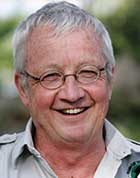
Zoologist (Honorary Professor of University of Glasgow)
Prof. Markus Borner
Africa, animals, and people
Professor Borner worked at Serengeti National Park in Tanzania, Africa to protect endangered wildlife and protected-area ecosystem over the past 40 years. He also insisted the importance of comprehensive and coordinated efforts for the conservation of entire ecosystems, which requires the contributions and commitment of people to the conservation of their ecosystem.
2015
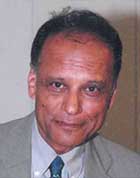
Professor Emeritus, University of Cambridge
Professor Sir Partha Dasgupta FBA FRS
What is Real Wealth?
Professor Dasgupta clarified impacts of the natural environment on human well-being in his research in economics, and found a strong correlation between poverty and the depletion of natural resources. In addition, Professor Dasgupta developed the inclusive wealth index (IWI) measuring national wealth in order to evaluate the progress of sustainable development. Findings from measurement with the IWI drew significant attention around the world.
2015
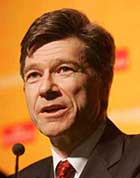
Director, The Earth Institute at Columbia University
Professor Jeffrey D. Sachs
We Can Eliminate Poverty!
Professor Sachs has contributed to solving the extreme poverty in the world with a unique approach called “Clinical Economics.” He proposed concrete measures, which can help solve global issues and realize a fair, sustainable world.
2014
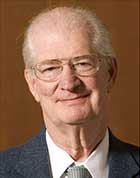
Professor Emeritus, School of Public Policy, University of Maryland
Prof. Herman Daly
Does economic growth make people happier?
Prof. Daly incorporated the environment, local communities, and ethics into economic theory and built a base of sustainable society.
2014
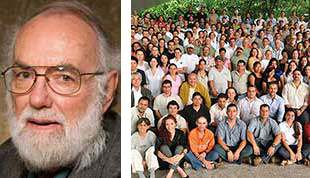
Prof. Daniel H. Janzen
Professor, Department of biology, University of Pennsylvania
Instituto Nacional de Biodiversidad (INBio)
Prof. Janzen and INBio presented role models, providing invaluable wisdom to both advanced and developing countries through activities such as sustainable development initiatives and policy recommendations.
2013
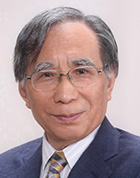
Principal Scientist, Research Institute for Global Change, Japan Agency for Marine-Earth Science and Technology
Dr. Taroh Matsuno
Dr. Matsuno has made a major contribution to international awareness of global warming and climate change. His paper, "Quasi-Geostrophic Motions in the Equatorial Area," which helped to explain the El Niño phenomenon and to elucidate climate change, is just one of many research accomplishments
2013
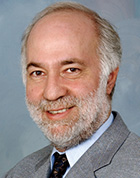
Professor, University of California, Davis
Professor Daniel Sperling
Prof. Sperling is recognized internationally as a leading expert on transportation, technology, fuels assessment, and policy, with a focus on energy and the environment. He has devoted his career to mitigating climate change and accelerating the global transition to cleaner, more efficient transportation and energy.
2012
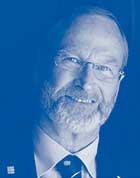
Professor, University of British Columbia, FRSC (Fellow of the Royal Society of Canada)
Professor William E. Rees
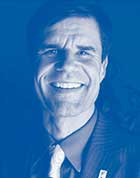
President, Global Footprint Network
Dr. Mathis Wackernagel
Developing and advancing the Ecological Footprint, a comprehensive accounting system for comparing human demand on ecosystems to ecosystems' capacity to self-renew. Their approach measures human carrying capacity and helps assess the risks of overconsumption to planetary stability.
2012
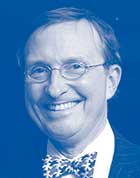
Professor, Environmental Science and Policy, George Mason University
Dr. Thomas E. Lovejoy
Becoming the first person to clarify human caused habitat fragmentation damaged biodiversity and gave rise to environmental crisis. Since then, he has been influencing the world for environmental conservation.
2011
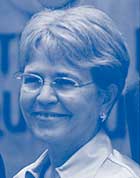
Under Secretary of Commerce for Oceans and Atmosphere
Administrator of the National Oceanic and Atmospheric Administration (NOAA)
Dr. Jane Lubchenco
For substantial contributions to the understanding of biodiversity and marine ecology and clear demonstration to the world of the importance of the social responsibility of scientists.
2011

Barefoot College
Having supported rural villagers in underdeveloped nations and created a model for autonomous regional social development through unique educational programs that emphasize traditional ideas and self-respect.
2010
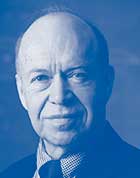
Director at Goddard Institute for Space Studies ( NASA )
Adjunct professor in the Department of Earth and Environmental Sciences at Columbia University
Dr. James Hansen
Having predicted global warming in the early stage and warned that it would very probably cause destructive results for life on Earth, he called on the governments and the public to take immediate action to reduce and mitigate the impact of climate change.
2010
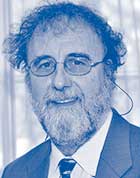
Chief Scientific Adviser of the UK Department for Environment, Food and Rural Affairs (DEFRA)
Chair of Environmental Science and Science Director at Tyndall Centre for Climate Change Research, the University of East Anglia
Dr. Robert Watson
Having organized the famous scientific project to derive scientific evidence of the depletion of the Ozone Layer, he eventually endorsed the Montreal Protocol. Later as Chair of IPCC, he played a significant role in coordinating and bridging science and policy for protecting the world environment.
2009
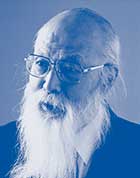
Member of The Japan Academy, Professor Emeritus, University of Tokyo
Professor Hirofumi Uzawa
As a theoretical framework for confronting environmental issues such as global warming, he has advocated the concept of Social Common Capital, which contributed to pioneering and highly original achievements from a very early stage.
2009
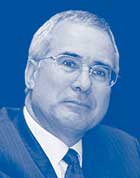
Professor, The London School of Economics
Lord (Nicholas) Stern of Brentford
Having reported the economic and social impact of and actions against climate change in The Economics of Climate Change with the approach of using cutting edge natural sciences and economics, he provided a clear cut polisy regarding the global warming, which has had a major impact on the world.
2008
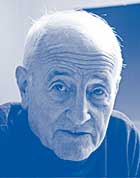
Director Emeritus of Research, CNRS
Member of the French Academy of Sciences
Dr. Claude Lorius
For his contribution in disclosing past climate change based on polar ice sheet core analysis and in discovering the relation between climate change during glacial and interglacial periods and atmospheric concentrations of carbon dioxide, indicating its current unprecedentedly high level and warning a consequent global warming
2008
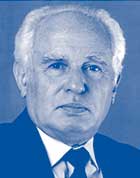
Professor, Institute of Electrotechnics and Energy, University of São Paulo
Former Rector, University of São Paulo
Professor José Goldemberg
For making major contributions in formulating and implementing many policies associated with improvements on energy use and conservation, in devising a pioneering concept of "technological leapfrogging" for the developing countries for their sustainable development and in exhibiting strong leadership in preparation for the 1992 Rio Earth Summit
2007
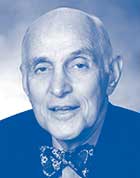
Professor Emeritus, University of California, Berkeley
Professor Joseph L. Sax
For drafting the world’s first modern environmental law based on public trust doctrine supporting citizen action for protection of the environment, and for his pioneering contributions in development of the theory of environmental protection law and in establishing environmental laws internationally
2007
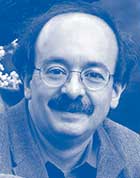
Chairman and Chief Scientist, Rocky Mountain Institute
Dr. Amory B. Lovins
For his contributions to leading global energy strategy for protection of the global environment by efficient utilization of energy through his advocacy of the concept of the "soft energy path" and invention of the Hypercar
2006
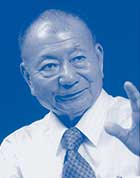
Director, Japanese Center for International Studies in Ecology (JISE)
Dr. Akira Miyawaki
For establishing a theory to restore and to reconstruct forests based on the concept of "Potential natural vegetation" and by implementing the theory succeeded in reconstructing disaster-preventing environment-conserving forests and tropical forests, contributed in restoring the green on earth
2006
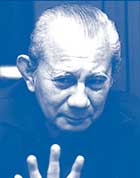
Professor, Faculty of Economics and Post Graduate Course, University of Indonesia
Former Minister of Population and Environment, Republic of Indonesia
Dr. Emil Salim
For contributing in establishing the concept of sustainable development and furthering global environmental policies through various United Nations' committees especially as the chairman of the Preparatory Committee for the World Summit on Sustainable Development
2005
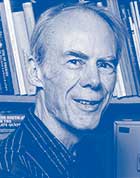
Emeritus Professor, Department of Earth Sciences, University of Cambridge
Former Head of Godwin Laboratory for Quaternary Research
Prof. Sir Nicholas Shackleton
For contributions to palaeoclimatology, particularly in identifying the glacial - interglacial climatic cycles and identifying the role of carbon dioxide as well as changes in the Earth's orbit in causing them; this aids us in better predicting future climate change
2005
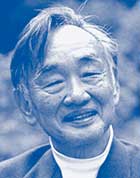
Director Emeritus, W. Alton Jones Cell Science Center. Inc.
Chairman of the Board, A&G Pharmaceutical, Inc.
President, Manzanar Project Corporation
Dr. Gordon Hisashi Sato
For developing a new mangrove planting technology in Eritrea and through its utilization thus showing the possibility of building a sustainable local community in the poorest area of the world
2004
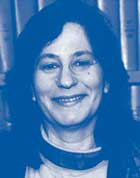
Senior Scientist, Aeronomy Laboratory, National Oceanic and Atmospheric Administration
Dr. Susan Solomon
For pioneering work in identifying the mechanism that produces the Antarctic ozone hole and momentous contributions towards the protection of the ozone layer
2004
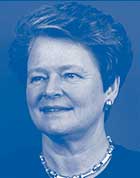
Chairman WCED (World Commission on Environment and Development)
Former Prime Minister of Norway
Director-General Emeritus, WHO
Dr. Gro Harlem Brundtland
For putting forward globally the innovative concept of sustainable development, an idea that aims to balance environmental conservation with economic growth
2003
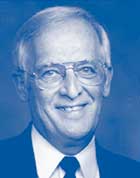
President adn Director, Institute of Ecosystem Studies
Dr. Gene E. Likens
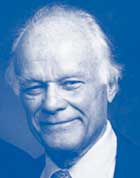
Oastler Professor of Ecosystem Ecology, Emeritus, Yale University
Dr. F. Herbert Bormann
For pioneering an approach that has become a model for the scientific world, and for the comprehensive understanding of ecosystems through long-term measurement of the flows of water and chemical substances in watersheds.
2003
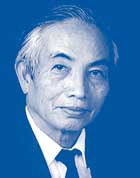
Professor, Center for Natural Resouces Management and Environmental Studies, Vietnam National University, Hanoi
Dr. Vo Quy
For investigating the war-damaged forests of Vietnam and for the dedication to its restoration and conservation, as well as for the development of environmental laws and the contributions to the conservation of wildlife.
2002
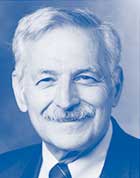
Professor, Department of Biological Sciences, Stanford University
Professor Harold A. Mooney
For pioneering work in the field of plant physiological ecology, for providing objective measures of how plant ecologies are influenced by their environments, and for his conservation efforts.
2002
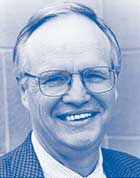
Dean and Professor, School of Forestry and Environmental Studies, Yale University
Prof. J. Gustave Speth
For a lifetime of creative and visionary ledarship in the search for science-based solutions to global environmental problems and for pioneering efforts to bring these issues, including global climate change, to broad international attention.
2001
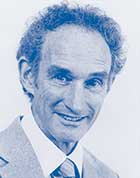
President of Royal Society of London
Lord (Robert) May of Oxford
For developing mathematical ecology, the means to predict changes in animal populations that serves as a fundamental tool for ecological conservation planning.
2001
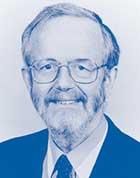
Honorary Visiting Fellow of Green College, Oxford University
Dr. Norman Myers
For ongoing leadership in warning about new environmental problems, such as the mass extinction of species, and stating the criteria for a society that attaches importance to environmental conservation
2000
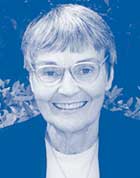
Senior Scientist and Director, Wildlife and Contaminants Program, World Wildlife Fund
Dr. Theo Colborn
For systematic research revealing the risk that "endocrine disruptors" pose to humans and wildlife and for warning about the threat of these synthetic chemicals
2000
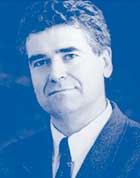
Chairman of The Natural Step (NGO)
Dr. Karl-Henrik Robèrt
For scientifically formulating the principles and theoretical framework required to establish a sustainable society and for enhancing the environmental awareness of business, municipalities and others
1999
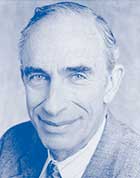
Director of the Center of Conservation Biology, Stanford University
Dr. Paul R. Ehrlich
For co-funding the new science of conservation biology, for co-authoring the theory of co-evolution and for promoting environmental conservation by warning of a population explosion
1999
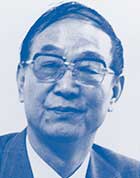
Chairman of the Environmental Protection and Resources Conservation Committee of the National People’s Congress of China
Prof. Qu Geping
For establishing the legal framework for environmental protection in China based on scientific research and for his conservation efforts throughout that vast country
1998
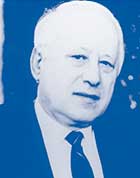
Head of the Division for Climate Change Research, State Hydrological Institute
Prof. Mikhail I. Budyko
For founding the field of physical climatology, the quantitative analysis of climate change, and making early predictions of global warming
1998
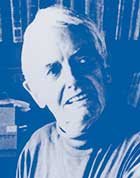
Chairman of the Earth Island Institute
Mr. David R. Brower
For pioneering in environmental activism, educating the general public about the science of environmental conservation and setting an important precedent of international environmental non-profit organizations
1997
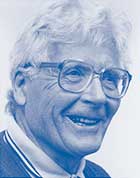
Honorary Visiting Fellow of Green College, Oxford University
Dr. James E. Lovelock
For Pioneering the detection and measurement of trace substances in the atmosphere in addition to formulating the Gaia Hypothesis of earth science, which has helped stimulate interest in the environment
1997
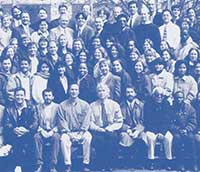
Conservation International (CI)
For Protecting the earth's biological diversity through research into ways to conserve ecosystems while improving the lives of local people
1996
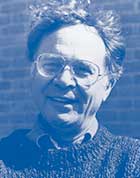
Newberry Professor of Geology, Lamont-Doherty Earth observatory of Columbia University
Dr. Wallace S. Broecker
For the discovery of the global ocean current known as the "great conveyor belt"and other pioneering research into global ocean currents, ocean chemical cycles, especially the carbon cycle, and the ocean's influence on global climate changes
1996
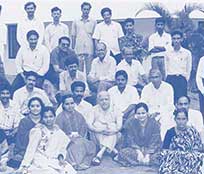
M.S. Swaminathan Research Foundation
For leading the way toward the realization of sustainable agriculture and rural development through research into soil improvement and genetic engineering of plant species and the application of these findings
1995
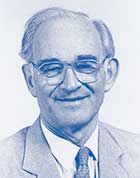
Professor Emeritus at the University of Stockholm
Chairman of the Intergovernmental Panel on Climatic Change (IPCC)
Dr. Bert Bolin
For pioneering research into the carbon cycle, which affects the oceans, the atmosphere,and ecosystems, and major contributions to worldwide climate policy formation
1995
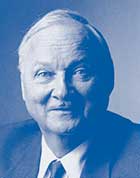
Chairman of the Earth Council
Mr. Maurice F. Strong
For international leadership in conceptualizing sustainable development and forming global-scale implementation strategies based on findings of scientific research into environmental problems
1994
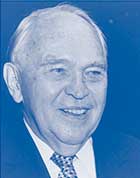
Professor Emeritus at the University of Kiel
Prof. Dr. Eugen Seibold
Major contributions to the understanding of global environmental problems through research in the field of marine geology, including the analysis of ocean sediments, the study of the exchange of carbon dioxide between the oceans and the atmosphere, and predictions of regional desertification
1994
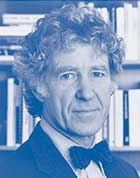
Founder and President of the Worldwatch Institute
Mr. Lester R. Brown
Formulation of solutions to global environmental problems based on scientific analysis and contributions to international awareness of food shortages, sustainable energy resources, and the need for an "environmental revolution"
1993
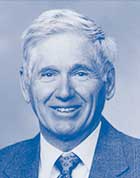
Professor, Scripps Institution of Oceanography at the University of California, San Diego
Dr. Charles D. Keeling
Many years of research into atmospheric and oceanic carbon dioxide levels and their precise measurement and analysis, yielding a vast body of data on global warming
1993
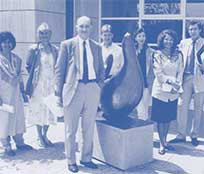
IUCN-The World Conservation Union
Outstanding research and the application of scientific strategies to the conservation of natural resources and the promotion of biological diversity on an international scale
1992
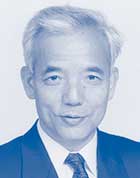
Member of the Senior Executive Service of the Geophysical Fluid Dynamics Laboratory at the National Oceanic and Atmospheric Administration
Dr. Syukuro Manabe
Pioneering research for predicting climate change by numerical models and quantifying the effects of greenhouse gases
1992
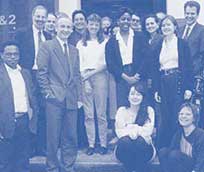
International Institute for Environment and Development (IIED)
Pioneering scientific research and implementation activities for the realization of sustainable development in a wide range of fields, including agriculture, energy and urban planning